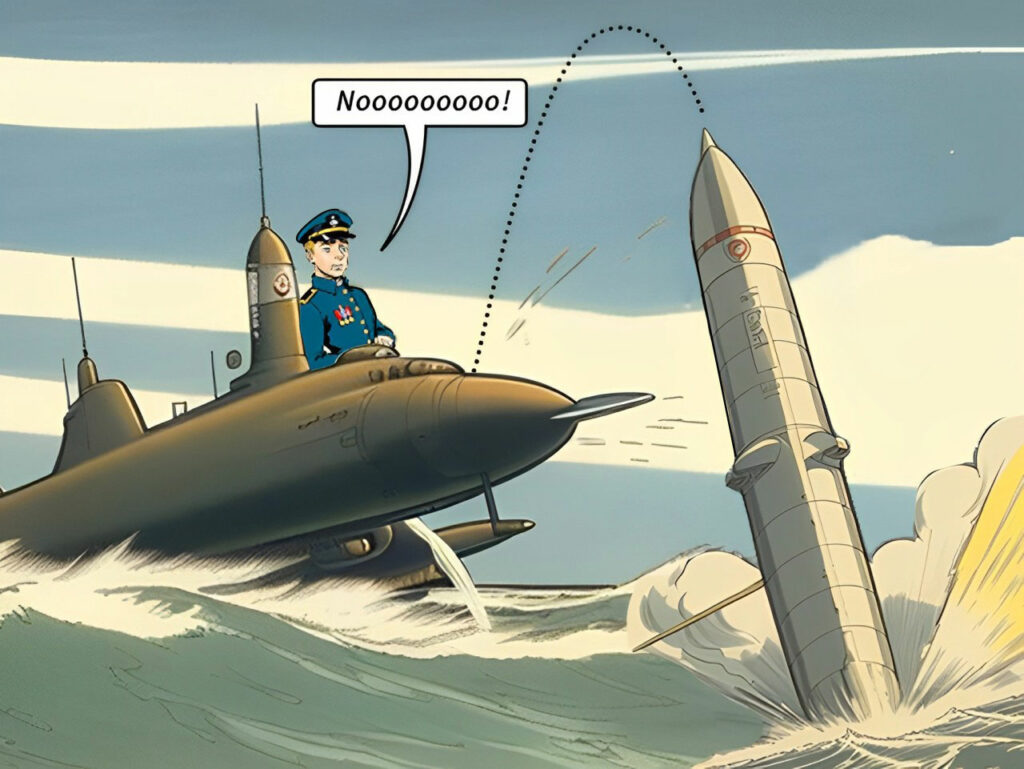Is the West in terminal decline? Some have dubbed the British armed forces a “laughing stock” after an expensive UK missile misfired sensationally for the second time in a row.
UK sub almost sinks itself with missile flop
 Sea fiasco: An unarmed Trident II ballistic missile crashed into the sea shortly after launch.
Sea fiasco: An unarmed Trident II ballistic missile crashed into the sea shortly after launch. Glossary
TS Eliot - The initials stand for Thomas Stearns. Born in the US, Eliot was one of the most influential figures in 20th-Century literature.
Nuclear deterrent - Nuclear weapons kept by a country as a warning to others not to attack.
Dissident - A person who opposes official policy, especially that of an authoritarian state.
Liberalism - A political and moral philosophy that protects and enhances the rights of the individual.
Globalisation - The growing interdependence of the world's economies, peoples and cultures.
Gaffes - Blunders or unintentional actions or sayings which cause embarrassment.
